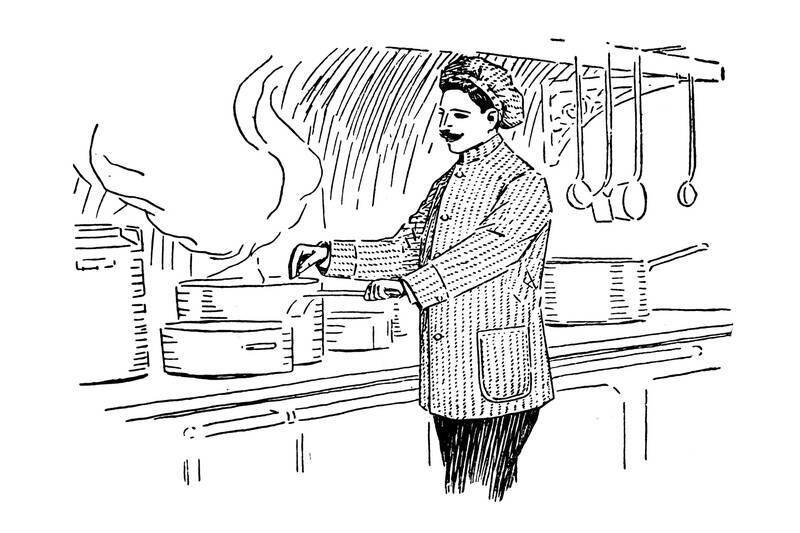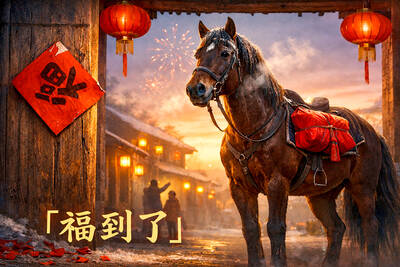In his famous tragic play Romeo and Juliet, the English playwright William Shakespeare wrote, “What’s in a name?” As it turns out, there is quite a lot in a name, particularly a surname, which is commonly known as a person’s last name in Western societies. A surname is written after the first name, which is also referred to as a given name or, traditionally, a Christian name. A closer look at the history of surnames reveals some fascinating insights into their origins.
It may come as a surprise to some that up until about 1,000 years ago, surnames were not commonly used in England. At that time, people were usually identified by a single personal name or a nickname that either they gave themselves or someone else thought of. This practice was mainly due to the small population size, which meant there was little need to use family names to distinguish between individuals.
However, this custom began to change as a result of population growth and the Norman invasion of England by William the Conqueror in 1066. The invaders brought with them to their conquered land the practice of using surnames, which gradually spread throughout the country.

Photo: Adobestock 照片:Adobestock
Interestingly, early surnames were not always passed down from father to child as they typically are today. Instead, they were often based on various aspects of a person’s life, such as a particular trade that they worked in. For instance, a person involved in weaving fabrics might have adopted the last name “Weaver,” while a person who worked in a kitchen might have taken on the surname “Kitchener.” Over time, these descriptive names became hereditary, eventually turning into permanent surnames.
在英國劇作家威廉莎士比亞的著名悲劇《羅密歐與茱麗葉》中,他寫道:「名字有什麼意義呢?」事實證明,名字中的確蘊含了不少意義,特別是姓氏(surname),在西方社會中通常稱為 last name。姓氏寫在名字之後,而名字也可以稱為 given name(名)或傳統上的 Christian name(教名)。深入探究姓氏的歷史,能揭示出它們起源的一些迷人之處。
對某些人來說可能會感到驚訝的是,直到大約一千年前,英格蘭並不普遍使用姓氏。當時,人們一般只用一個名字或綽號作為身分識別,可能是他們自己取的,或是別人替他們想出來的。這種做法主要是因為當時人口規模較小,因此幾乎沒有使用姓氏來區分每個人的必要。

Photo: Adobestock 照片:Adobestock
然而,隨著人口增長,以及 1066 年征服者威廉率諾曼人入侵英格蘭,這種習俗開始有所改變。這些入侵者將使用姓氏的做法帶到了他們所征服的土地上,並逐漸在全國傳開。
有趣的是,早期的姓氏並不總是像現今那樣由父親傳給子女。反之,當時的姓氏往往是根據一個人生活中的各個面向來命名,像是他們從事的特定行業。舉例來說,從事織布工作的人可能會採用 Weaver 作為姓氏,而在廚房工作的人姓氏則可能取為 Kitchener。隨著時間推移,這些描述性的名字成為家族世襲的姓氏,最終成為永久的姓氏。
Words in Use

Photo: Adobestock 照片:Adobestock
1. tragic a. 悲劇的,悲慘的
It was a tragic love story that ended with both characters losing their lives.
這是一段悲慘的愛情故事,最終兩位主角都喪命了。
2. fascinating a. 吸引人的
From what I’ve heard, this movie is fascinating and well worth seeing.
據我所知,這部電影非常棒,很值得一看。
3. insight n. 洞察力,深刻見解
The author’s book gives us a deep insight into the lives of refugees.
這位作者的書讓我們深入了解難民的生活。
4. identify vt. 辨識,認出
The police were able to identify the thief from the security footage.
警方能夠從監視畫面中認出小偷。
5. nickname n. 綽號
Frank’s classmates gave him the nickname “Rocket” because he runs so fast.
法蘭克的同學們給他取了「火箭」這個綽號,因為他跑得很快。
Practical Phrases
1. As it turns out, S + V
事實證明∕結果是,……
As it turns out, Jerry was telling the truth all along.
結果,傑瑞一直都在說實話。
2. be referred to as. . . 被稱為……
Hollywood is often referred to as the capital of the film industry.
好萊塢常被稱為電影業之都。
3. It comes as a surprise + that 子句
……令人驚訝∕出乎意料
It may come as a surprise to you that English has many words with French origins.
你可能會很驚訝,英文中有許多字來自法文。
4. pass down from A to B
從A 傳給B(多指代代相傳,如傳統、知識或財產等)
These stories were passed down from generation to generation. 這些故事一代一代被傳了下來。
5. be / get involved in. . . 參與∕從事……
Mina is involved in environmental protection work. 蜜娜從事環境保護的工作。
To be continued tomorrow(明日待續)
https://www.taipeitimes.com/News/lang
聽文章朗讀及講解: https://ivy.pse.is/455bfu
本文出自常春藤解析英語雜誌: www.ivy.com.tw

A: I’m glad that the Grammys will honor the late pop diva Whitney Houston with a Lifetime Achievement Award. Who are this year’s leading nominees? B: Kendrick Lamar is leading the nominations with nine nods, followed by Lady Gaga with seven nods. Bad Bunny, Sabrina Carpenter and Leon Thomas each gained six nods. A: I heard that the song “Golden” from global animated blockbuster KPop Demon Hunters received three nominations, including Song of the Year. B: Blackpink’s Rose and Bruno Mars’ “APT.” also received major recognition with multiple nominations, including Record of the Year, setting a milestone for

It graced statues, colored coffins, and decorated artifacts. It is Egyptian blue, the world’s oldest-known synthetic pigment born in ancient Egypt. Despite its name, it is not limited to a single hue. It ranges from deep blue to greenish tones, often glowing with an almost unearthly brilliance. __1__ In response, the ancient Egyptians developed a synthetic alternative. Not only was it visually striking, but it was also more affordable than imported indigo or natural lapis lazuli. Traces of the pigment have been discovered far beyond Egypt, from wall paintings in Pompeii to tiles in Mesopotamia. However, Egyptian blue began to fall

Contrary to popular belief, glass bottles may pose a greater microplastic risk than plastic ones. A recent study found that beverages stored in glass bottles can contain up to 50 times more microplastic particles than those in plastic containers. Researchers traced most of the contamination to the paint on the outside of the metal caps. The particles found in the drinks matched the cap’s coating in both color and composition. Experts suggest the issue may result from microscopic scratches that form as caps rub against each other during transport or storage. Such scratches can damage the painted coating, leading

Bilingual Story is a fictionalized account. 雙語故事部分內容純屬虛構。 Just yesterday, the boy had helped hang the lucky red couplets. Tonight, as firecrackers signaled the New Year, he lay in bed burning with a surging fever. The herbalist checked the boy’s pulse and went still. “The only cure is in the county town across the mountains,” he said. “But the snow is deep, and the shops are shuttered until the Fourth Day.” The boy’s father looked at the window. “I will go.” “The roads are impassable for a cart,” the herbalist warned. “And too far for a man on foot.” The concerned neighbor